Select Works of Obadiah Sedgwick (8 vols.)
Digital Logos Edition
Overview
Get some of the most significant works from Puritan preacher and theologian Obadiah Sedgwick. Collecting some of Sedgwick’s most important sermons, as well as treatises on sin and atonement, this collection provides up-close insight into Puritan theology. Sedgwick, John Owen’s predecessor as vicar of Coggeshell, also preached sermons covering practical topics such as overcoming doubt and understanding heresy. Written mostly during the rule of Oliver Cromwell, his work sheds light on Puritanism’s influence in the English Protectorate and the Westminster Assembly—of which Sedgwick was a member.
In the Logos editions, these volumes are enhanced by amazing functionality. Important terms link to dictionaries, encyclopedias, and a wealth of other resources in your digital library. Perform powerful searches to find exactly what you’re looking for. Take the discussion with you using tablet and mobile apps. With Logos Bible Software, the most efficient and comprehensive research tools are in one place, so you get the most out of your study.
Get more insight into Puritan history with The Lives of the Puritans (3 vols.).

Key Features
- Compiles Obadiah Sedgwick’s most notable sermons and writings
- Explains puritan teachings on the nature of sin and atonement
- Illuminates the practical and theological background of Puritanism and the Westminster Assembly
Product Details
- Title: Select Works of Obadiah Sedgwick
- Author: Obadiah Sedgwick
- Volumes: 8
- Pages: 872
- Christian Group: Reformed
- Resource Type: Sermons, Collected Works
- Topic: Biblical Studies, Atonement
This title is included in the following collections
You can save when you purchase this product as part of a collection.
Logos 7 Reformed Bronze Legacy...
$89.99$89.99Logos 7 Reformed Silver Legacy...
$349.99$349.99Logos 7 Reformed Gold Legacy L...
$849.99$849.99Puritan Ultimate Collection (1...
$1,099.99$1,099.99
- $1,499.99
- $2,999.99
- $4,749.99
- $12,102.39$7,299.99
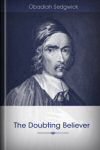
A Puritan treatise on assurance of salvation, this book comes from one of the leading members of the Westminster Assembly, Obadiah Sedgwick. The Puritan theologian inspects the nature of doubt in the lives of believers, and suggests a remedy grounded in faithfulness.
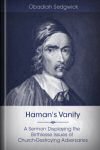
Examining the story of Haman in the book of Esther, Puritan theologian Obadiah Sedgwick’s Thanksgiving sermon explains how enemies of the church attempts at destruction are ultimately thwarted by God. Written in the throes of the English Civil War, Sedgwick’s work is a poignant testimony to God’s faithfulness in the midst of chaos.
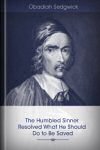
Puritan Obadiah Sedgwick testifies to Jesus Christ’s status as the only way of salvation for sinners. Sedgwick distinguishes between strong and weak faith, discusses the difficulty of believing, the misery of unbelief, and the nature of living by faith. The Puritan theologian also examines the concept of assurance of salvation and much more.
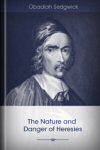
Examine the nature of heresy and the danger of allowing it to continue unchecked with Puritan theologian Obadiah Sedgwick. Sedgwick asks three central questions: what is God without truth? What is all the goodness of the Gospel without truth? And what is the fabric of man’s salvation without truth? He concludes that a church is never closer to death than when it gives up its claim to the only truth.
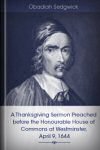
Obadiah Sedgwick preached this sermon for Thanksgiving in honor of a defeat of Royalist forces raised against Parliament. Sedgwick discusses how David’s faith led him to pray to God in the midst of troubles—and how he thanks God for victory over his enemies. Sedgwick’s central theme is how salvation—and victory—is ultimately found only in God.
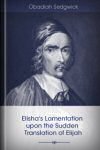
Preached at the funeral of a Mr. William Strong, Puritan theologian Obadiah Sedgwick expounds on 2 Kings 2:1–11. Sedgwick focuses on Elisha’s grief upon Elijah’s translation. His sermon is both a moving eulogy and clear window into Puritan teaching on death and heaven.
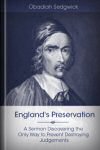
This sermon from Obadiah Sedgwick expounds on the only way to escape judgment. Sedgwick delivered the sermon to the House of Commons at their last solemn fast, near the beginning of the English Civil War.
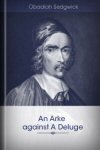
Exploring the story of Noah and the ark, Obadiah Sedgwick discusses the nature of fear and hope, which he sets up as represented by the flood and the ark respectively. Sedgwick explains that when trials come, it is normal to be moved with fear—but in preparation for a flood, it is necessary to build an ark. He argues that we must fear enough to take action, but have hope enough not to despair.
About Obadiah Sedgwick
Obadiah Sedgwick (1600–1658) was a Puritan preacher and theologian, and a member of the Westminster assembly. He was the son of Joseph Sedgwick, vicar of St. Peter’s, and then of Ogbourne St. Andrew. Sedgwick matriculated at Queen’s College, Oxford, in June 1619 and then moved to Magdalen Hall, where he graduated with a BA, and earned his MA in 1623.
Sedgwick was vicar of Coggeshell, Essex before John Owen succeeded him upon Sedgwick’s appointment to St. Paul’s, Covent Garden. In his last years he was a member of the 11th London classis in the parliamentary presbyterian system and a trier under Oliver Cromwell, helping direct the reform of parish worship during the brief reign of the Lord Protector.
Reviews
3 ratings

Debra W Bouey
3/29/2016

Kenneth Bonham
3/28/2016
It is important to note that this resource has been left in its old English formatting (somewhat close to the true 1611 KJV format).
Mr. Youngblood
3/26/2016